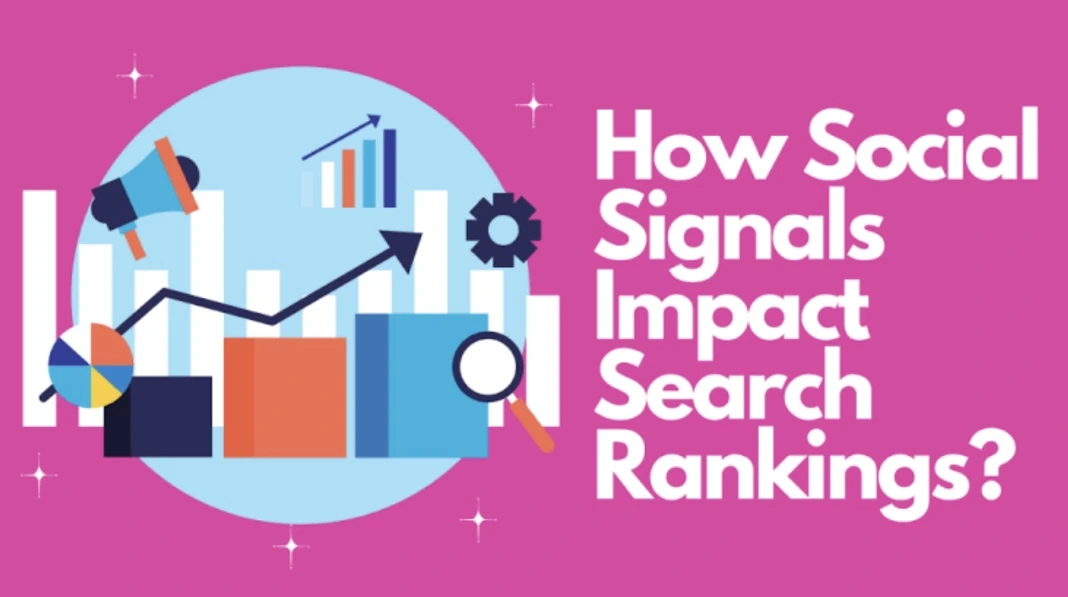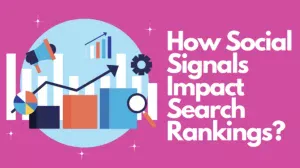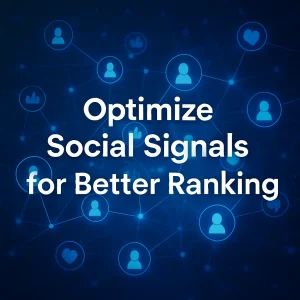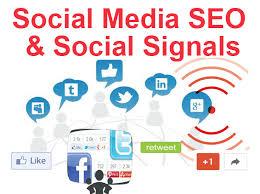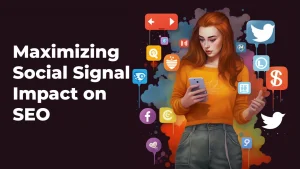Social Signals Impact Search Rankings
It’s essential to understand every factor that could affect your search engine ranking in the dynamic world of SEO. While traditional SEO practices like keyword optimization, backlink building, and technical audits are well-known, the role of social signals in search rankings often sparks curiosity and debate. So, what are social signals, and how do they influence your website’s performance in search engines? Let’s dive in.
Social signals refer to the engagement metrics that your content receives on social media platforms. These include likes, shares, comments, retweets, and other interactions. Essentially, they reflect how users are engaging with your brand and content across social networks.
For instance, a blog post that garners hundreds of shares on Facebook, multiple retweets on X (formerly Twitter), or a spike in saves on Instagram generates strong social signals. These signals showcase your content’s popularity and relevance, which indirectly can play a role in improving search engine visibility.
Do Social Signals Directly Impact SEO Rankings?
Google has stated that social signals are not direct ranking factors. However, their indirect impact on SEO is undeniable. Here’s how:
1. Increased Visibility and Traffic
Content that performs well on social media often attracts more clicks and visits to your website. The increased traffic can boost your website’s engagement metrics, such as time spent on page and lower bounce rates—two factors that search engines use to gauge content quality and relevance.
2. Amplifying Content Reach
When users share your content on social media, it reaches a broader audience. This extended reach increases the chances of earning backlinks from other websites, a key ranking factor in SEO. Social media essentially acts as a distribution channel, helping your content gain the exposure it needs to attract high-quality links.
3. Building Brand Authority
Strong social signals contribute to your brand’s online credibility. A brand that consistently engages with its audience on social platforms is more likely to be trusted by both users and search engines. This trust can indirectly impact rankings by encouraging higher click-through rates (CTR) in search results.
Essential Social Metrics to Prioritize
Not all social signals carry the same weight. Here are the ones that matter most:
- Shares: Content shared widely signals high relevance and value.
- Comments: Engaging content that sparks discussions indicates user interest.
- Likes and Reactions: While lighter in weight, they still reflect user appreciation.
- Brand Mentions: Mentions of your brand name on social media platforms build visibility and credibility.
- Follower Growth: A growing social media following demonstrates brand popularity and trustworthiness.
How to Optimize Social Signals for Better Rankings
While you can’t control social signals entirely, you can take steps to enhance them. Here are some actionable tips:
1. Create Shareable Content
Focus on producing high-quality, engaging, and relevant content tailored to your audience’s interests. Infographics, how-to guides, and listicles tend to perform well on social platforms.
2. Engage With Your Audience
Keep your audience engaged by responding to comments, participating in discussions, and encouraging feedback.
3. Use Social Media Meta Tags
Ensure your content looks appealing when shared by using Open Graph tags for Facebook and meta tags for X. Eye-catching headlines, descriptions, and images increase the likelihood of shares.
4. Incorporate Social Sharing Buttons
Make it easy for readers to share your content by adding social sharing buttons to your website or blog posts. The easier it is to share, the more likely users will do so.
5. Collaborate With Influencers
Partnering with influencers in your niche can significantly boost your content’s visibility on social platforms. Influencers often have highly engaged audiences who trust their recommendations.
Social Signals and Other Search Engines
It’s not just Google that considers the importance of social signals. Bing, for example, openly acknowledges that social signals play a role in its ranking algorithms. Strong engagement on social platforms can positively influence your visibility on Bing’s search results.
The Bottom Line
While social signals may not be a direct ranking factor for Google, their indirect impact on your search engine performance is significant. From increasing traffic to boosting brand authority, the interplay between social media and SEO is undeniable. By leveraging social signals effectively, you can create a powerful synergy between your social media strategy and SEO efforts, ultimately driving better results for your website.
